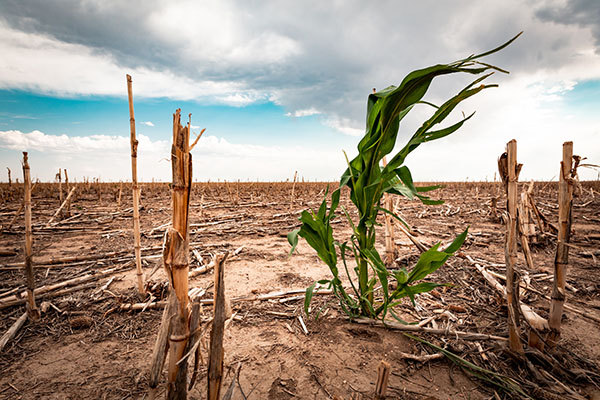
Nigeria’s agricultural heartland faces a deepening water crisis, with farmers in northern regions grappling with diminished water availability and plummeting yields. While climate narratives dominate media headlines, evidence points to human-driven mismanagement—including institutional negligence, poor agricultural policies and deforestation—as the root cause. With Nigeria’s population projected to soar to 400 million by 2050, addressing systemic defects in resource governance is the urgent priority if the country is to avert a food security catastrophe.
Cyclical droughts: A natural legacy, not new climate crisis
Historical records show Nigeria’s northern regions have endured recurring droughts since the early 20th century, long before modern climate change concerns. The devastating Sahel drought of the 1970s and dry spells in the ‘90s/2010s were tied to natural rainfall variability, not shifting climatic “trends.” Linnea Lueken of the Arthur B. Robinson Center emphasizes these cyclical patterns, stating, “Today’s water struggles stem from population growth, unsustainable land use—and critically, poor decisions by policymakers—not a new climate apocalypse.” The droughts of the 20th century, predating contemporary debates on climate, prove such challenges are not novel.
Sowing confusion: The climate change distraction
Corporate-backed environmental groups and international media have sought to rebrand Nigeria’s crisis as “climate-driven,” citing shrinking lakes and irregular rainfall. Yet field reports, such as those from the UN Food and Agriculture Organization (FAO), contradict this narrative. For instance:
Deforestation and drilled groundwater: Man-made ecological time bombs
Satellite data reveals Nigeria’s tree cover has vanished at an alarming rate—not due to desertification alone, but unregulated farming expansion. The FAO notes that 80% of Nigerian smallholders rely on unpermitted boreholes, depleting aquifers by 15 meters in regions like Kano and Katsina. Analysts argue that Nigeria’s government prioritizes oil profits over water security, letting farmers drill without oversight. "This is management failure, not Mother Nature.”
Meanwhile, population growth (up 200 million since 1990) and livestock expansion have strained existing resources, but even this surging demand is manageable were governance structures sound.
Political apathy amplifies the crisis
Nigeria’s GDP growth (3% annually) appears buoyant, yet economic gains fuel incompetence, not reform.:[
Aiming for lasting, human-powered fixes
Reforms must prioritize adaptive practices and systemic accountability:
Historical resilience offers clues: Pre-colonial communities thrived via village ponds and diversified crops, says historian Mbakwe Nnamdi. Combining these timeless practices with controlled irrigation could redefine survival.
Deeper wells, not more climate blame
The UN warns Nigeria risks losing half its food production by 2050—but the path out depends far less on reducing CO2 than on solving political emergencies. As irrigation experts in Kano stress, “We need drip systems, not slogans about climate justice. Nigeria’s rains never caused this mess—its governors did.”
The crisis is a choice: reform or collapse. The stakes could not be clearer—and the solutions, inconveniently for climate alarmists, are in Nigerian hands alone.
Sources for this article include:
WattsUpWithThat.com
NaturalNews.com
FarmingFarmersFarms.com
Source link

